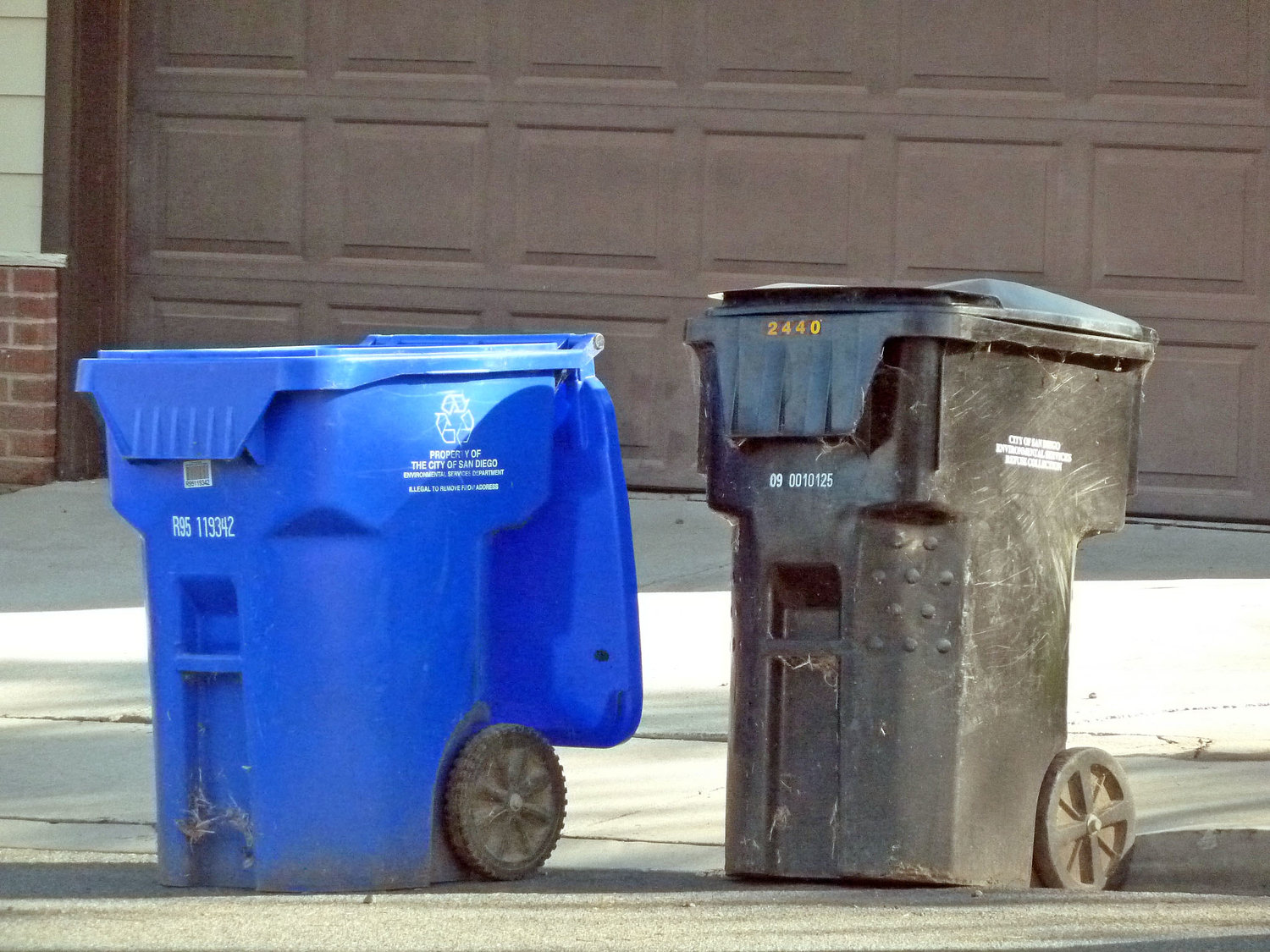Recycling and garbage pickups comingled in Glen Cove until further notice
Ever since March 23, to protect its workers, the Department of public works has changed its recycling and trash pickup schedule throughout the City of Glen Cove. And now, recyclables and garbage will be comingled.
When residents were first notified of the schedule changes in late March, Glen Cove Councilman Gaitley Stevenson-Mathews said that he heard from residents that they understand and supported the changes. “Residents, when they understand the need, they don’t mind making the sacrifices,” he said. “From my perspective, that’s what Glen Cove does best.”
However since the changes have been implemented, there has been some confusion among residents. In fact, many residents believed that the recycling program was discontinued after a post on online circulated that the recycling program was suspended.
“The posting was rectified to ensure that all residents were cognizant of the fact that recycling pick-ups continue simultaneously with their garbage pick-up,” Louis Saulino, the director of DPW, said via email. “This was never discontinued. Please refer to the current posting on the website.”
Nicole Loizides said that many residents are confused about the current status of the recycling program. “I think it could be clearer,” Loizides said. “I feel that before decisions are made public, they should have a good idea on how to get it out to the community. It’s not that large of a city.”
At a pre-council meeting on April 7, Stevenson-Mathews said that a resident told him that she saw on March 23 her recyclables and garbage, which she had separated, being thrown into the same garbage truck. Then, the following week she saw her garbage and recyclables placed into a pickup truck. The following week, she saw a garbage truck take in both her recyclables and garbage again.
This concerned her, Stevenson-Mathews said, because residents were told through a robo-call to make an effort to separate their recyclables and garbage.
“Normally, the garbage and recyclables are picked up on separate days,” Saulino said. “During this COVID period, in any effort to minimize the exposure of our crews, we have reduced pick-ups. This is done by picking up garbage and recycling on the same day. Sanitation crews place both the garbage and recyclable in the same truck at pick up (co-mingling the two). A big reason for this is also attributable to a reduced workforce at our Waste Treatment facility which is maintained by Winters Brothers.”
Councilwoman Dr. Eve Lupenko Ferrante said that DPW is having to do twice as many pickups in two days, instead of doing it throughout the week. In fact, workers in the Highway Department have been doing pickups, she said, which is why residents are seeing pickup trucks.
Mayor Timothy Tenke said at the April 14 city council meeting that while DPW initially contemplated separating recyclables and garbage at the transfer station, it has become apparent that it is not economically feasible to do so.
This is in lieu of the single-stream recycling program. “It has now become clear that it is not economically feasible to do so,” he said, at the remote council meeting. “So your garbage and recycling will temporarily be comingled until such time that the single-stream recycling program can be reinstituted. We anticipate that this will be a short lived disruption of our program.”
It was made clear at the April 21 pre-council meeting that the safety of DPW workers were a priority. Saulino said that Tenke has been holding weekly meetings with department heads during the pandemic and that “all options to maintain maximum safety for DPW sanitation personnel and resurrecting the standard recycling procedures are reviewed.”
According to Tenke, Glen Cove has a contract with Winter Brothers that allows the city to be paid $5 per ton of recyclables.
“I love the fact that people are concerned about recycling,” Tenke said. “Most people do it and most people do it well, so I don’t want to lose that, the ability to remember how to recycle when it comes back. We are going back to that system and I want people to continue to recycle.”
Loizides added that in her household, the amount of single-use plastics and materials they use have been reduced. Her family makes cleaning products at home, uses glass and metals instead of plastics and avoids buying packaged produced by going to local markets.
“I think the biggest thing to get out above and beyond even just the confusion regarding things going in the same receptacle, or same truck rather, is that we really need to limit our waste,” Loizides said.

 53.0°,
Mostly Cloudy
53.0°,
Mostly Cloudy 




